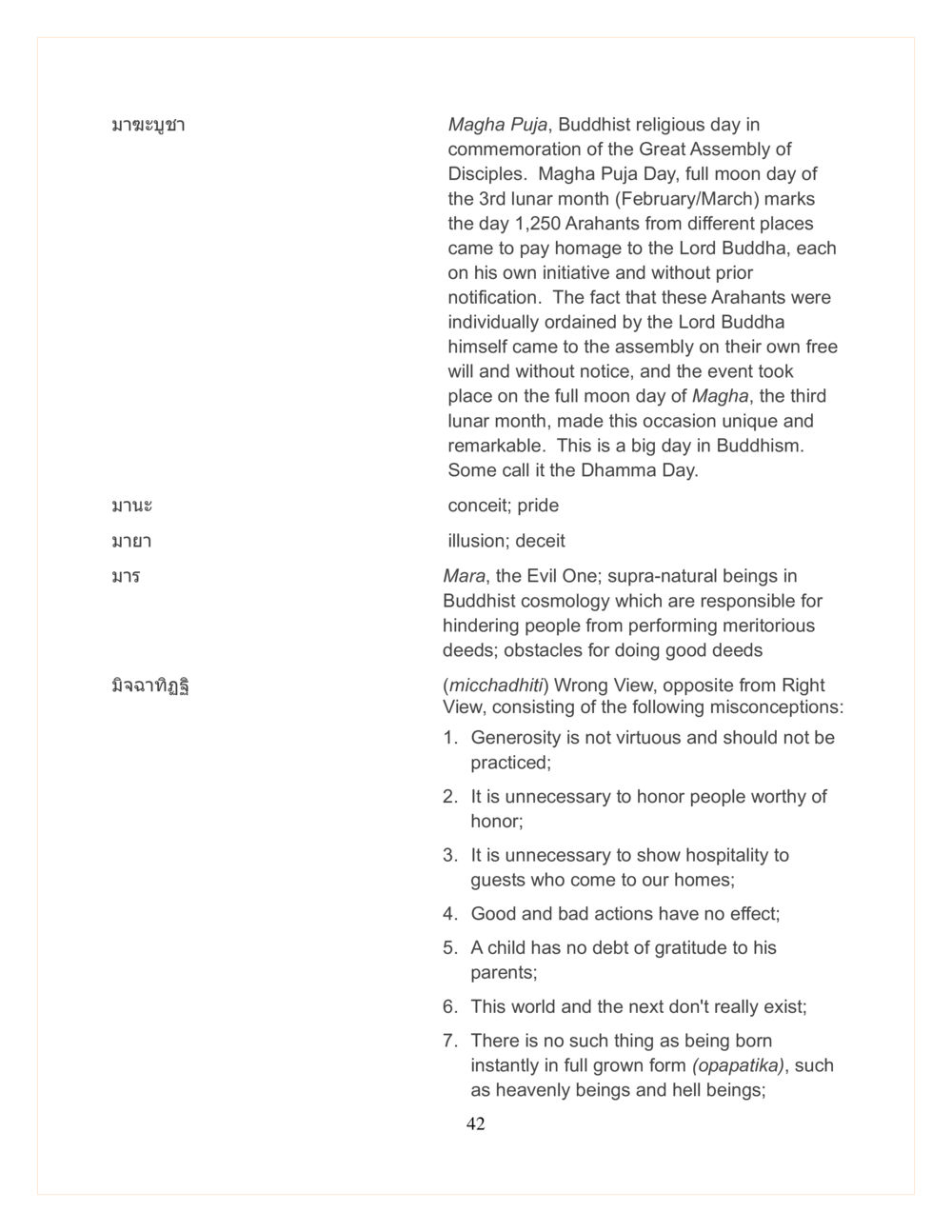มามะบุชา : หน้า 42/115
DMC Translor’s handbook : หน้า 42/115 มามะบุชาเป็นวันสำคัญทางศาสนาพุทธที่เฉลิมฉลองการชุมนุมใหญ่ของพระอรหันต์ ในวันที่พระอรหันต์ 1,250 รูปมารวมตัวกันเพื่อเคารพพระพุทธเจ้า
0 ครั้ง

สรุปเนื้อหา
มามะบุชา หรือ วันธรรมะ เป็นวันที่เฉลิมฉลองการชุมนุมของพระอรหันต์ 1,250 รูป ที่มาชุมนุมเพื่อเคารพพระพุทธเจ้าในวันพระจันทร์เต็มดวงของเดือนที่ 3 ตามปฏิทินจันทรคติ ไม่มีการนัดหมายและเป็นการมาด้วยความสมัครใจ มันเป็นวันที่มีความพิเศษและมีความสำคัญในพุทธศาสนา โดยมีพระอรหันต์ที่ได้รับการบวชจากพระพุทธเจ้า มารวมกัน เพื่อเรียนรู้และกันถึงหลักธรรม
หัวข้อประเด็น
-มามะบุชา
-การชุมนุมของพระอรหันต์
-ความสำคัญของวันธรรมะ
-หลักธรรมและการประพฤติปฏิบัติ
ข้อความต้นฉบับในหน้า
มามะบุชา
Magha Puja, Buddhist religious day in commemoration of the Great Assembly of Disciples. Magha Puja Day, full moon day of the 3rd lunar month (February/March) marks the day 1,250 Arahants from different places came to pay homage to the Lord Buddha, each on his own initiative and without prior notification. The fact that these Arahants were individually ordained by the Lord Buddha himself came to the assembly on their own free will and without notice, and the event took place on the full moon day of Magha, the third lunar month, made this occasion unique and remarkable. This is a big day in Buddhism. Some call it the Dhamma Day.
conicet; pride
illusion; deceit
Mara, the Evil One; supra-natural beings in Buddhist cosmology which are responsible for hindering people from performing meritorious deeds; obstacles for doing good deeds
(ไมชาดthol) Wrong View, opposite from Right View, consisting of the following misconceptions:
1. Generosity is not virtuous and should not be practiced;
2. It is unnecessary to honor people worthy of honor;
3. It is unnecessary to show hospitality to guests who come to our homes;
4. Good and bad actions have no effect;
5. A child has no debt of gratitude to his parents;
6. This world and the next don't really exist;
7. There is no such thing as being born instantly in full grown form (opapatika), such as heavenly beings and hell beings;
หน้าหนังสือทั้งหมด
หนังสือที่เกี่ยวข้อง
Load More



















































































































